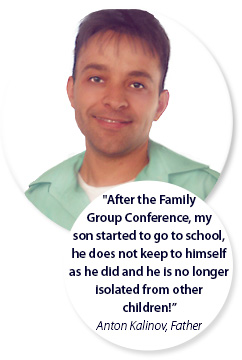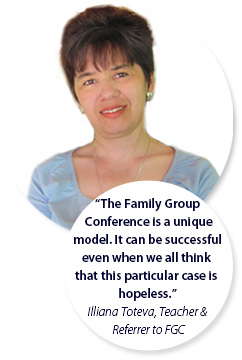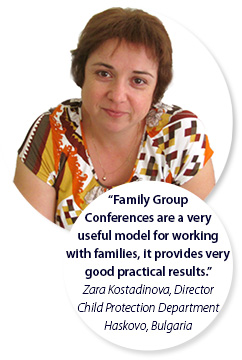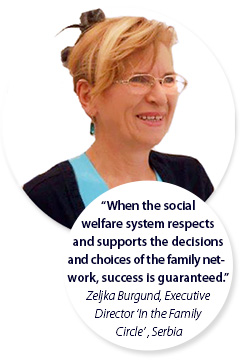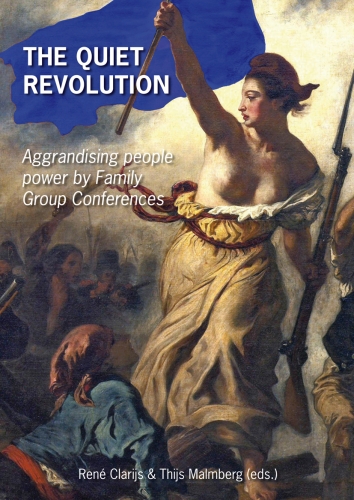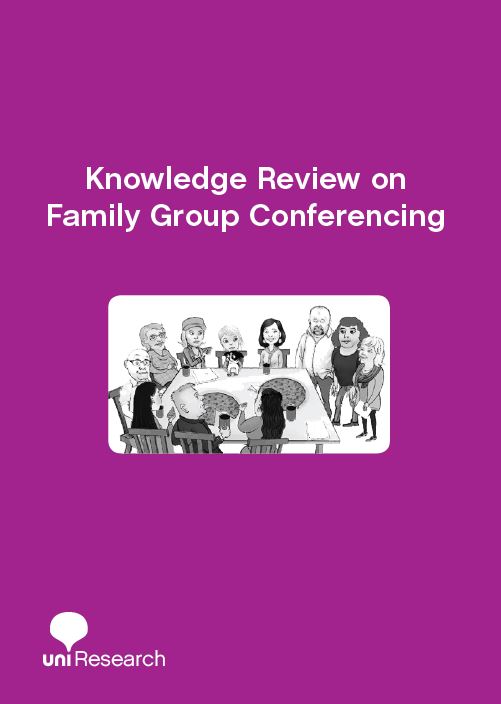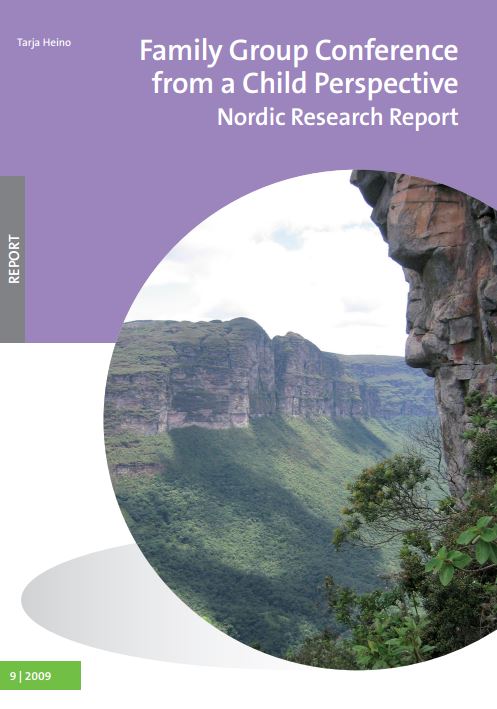Research
2024: UK research with positive outcomes Impact of Family Group Conference Referrals at Pre-Proceedings Stage on Child Outcomes: A Randomised Controlled Trial
Research from the UK:
https://frg.org.uk/lifelong-links/impact-of-lifelong-links/
https://frg.org.uk/family-group-conferences/fgc-research/
Books
English
The Quiet Revolution, Aggrandising people power by Family Group Conferences
Book edited by: René Clarijs & Thijs Malmberg (eds.) ISBN: 9789088503726
The all-encompassing welfare state that often suffocates citizens is having its final drink in the last-chance saloon. The introduction of the open market as a possible alternative has not been successful either. People are suppressed by the expanding ‘system world’, damaging their ‘life world’. For that reason the welfare state does not need to be reformed, but replaced. The participation state is the natural successor. In that society – which could also be characterised as do-it-yourselves – people themselves prefer to address and resolve issues affecting their own living conditions on a family and community level. This transition in the western world from ‘state power’ to ‘people power’ implies that governments and nonprofit organisations must assume a different position. Both parties must exercise restraint so that, at last, the civil society can show its power. Self-management and self-governance become more and more important. This fundamental shift is occurring in a time of peace and quiet and for that reason we can talk about a quiet revolution. A renowned and famous example of what people power is able to achieve, is the phenomena of Family Group Conference. Initially, this way of solving social and personal problems originates from New Zealand, but it is spreading rapidly throughout the western world. More information.
Reports
English
Knowledge Review of Family Group Conferencing
(2014), Skaale Havnen, K. J., Christiansen, Ø.
“This review aims to provide knowledge and information about the current status of family group conferencing used by the child welfare services and the status of FGC in other areas. The review team worked on this assignment for the Norwegian Directorate for Children, Youth and Family Affairs, from December 2013 to July 2014.” More information.
Family Group Conference from a child perspective
Nordic Research Report. (2009), Heino, T.
“The aims for the research project were:
1. To seek for and to develop an alternative way to explore FGC and in general, social work;
2. To strengthen the position of research focusing on the child;
3. To strengthen the position of the child and to keep the child perspective visible in practical child protection social work;
4. To create ways to establish dialogical settings and to carry out dialogues between both the Nordic researchers and between people in the practical research settings in each country.”
The research was carried out in a child protection context in Denmark, Finland, Iceland, Norway and in Sweden. More information.
